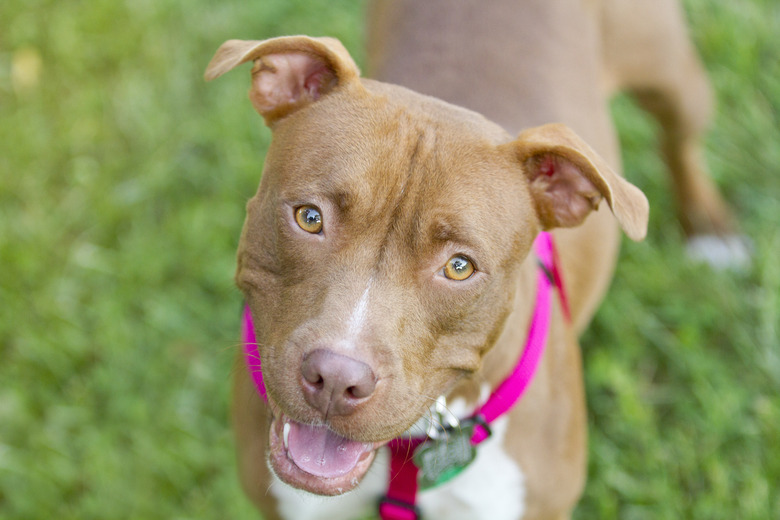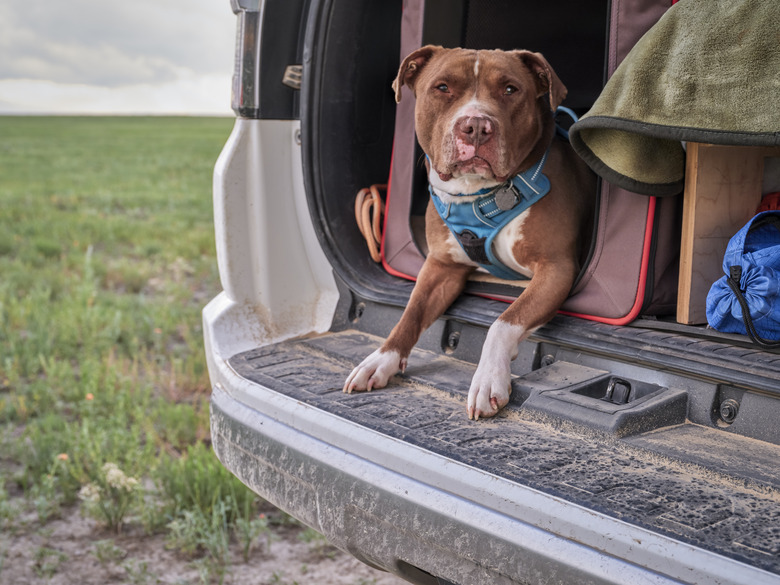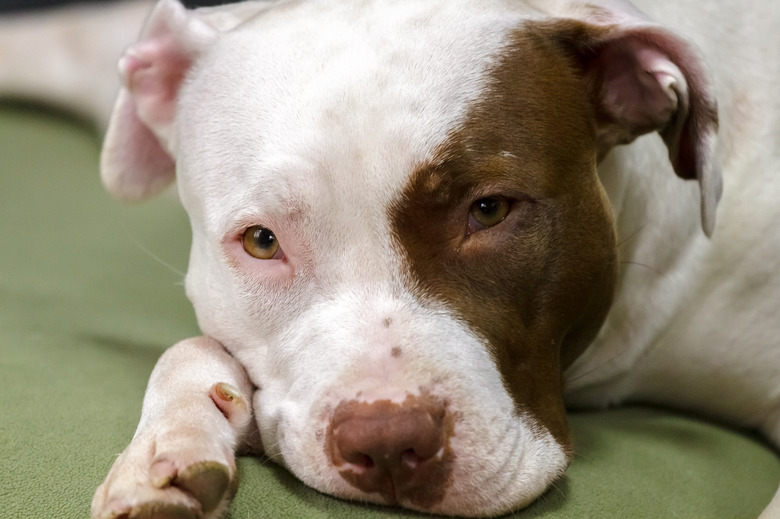How To Train A Red Nose Pitbull
While pitbulls often have the reputation for being dangerous and aggressive, they are actually intelligent dogs who are eager to please. A red nose pitbull describes the coloring of the dog, but they are not a special type or breed of pitbull. The temperament of a red nose pitbull mix may be different depending on the breed he is mixed with. When training a red pitbull, take into consideration his temperament and energy level to have the best experience for both you and your dog.
Red nose pitbull temperament considerations
Red nose pitbull temperament considerations
Pitbulls come in nearly any color, except for merle, and any nose color is acceptable. A pitbull with a red nose has the same physical characteristics and general temperament as pitbulls of other colors. While breed is not a reliable indicator of personality, a red pitbull is generally a loyal and intelligent companion. He can also become territorial and protective, which means he may show aggression towards animals or people if not properly socialized. Pitbulls may not be a good choice if you have cats or small children in the household, although pits often do well if they are raised with pets and children and their behavior is moderated.
This breed is strong and athletic and needs plenty of exercise. Due to their energy level and personality, you may want to hire a professional trainer to help you with your dog, especially if you are new to training and socialization.
Early socialization requirements
Socializing your baby red nose pitbull is critical to having a well-behaved and social adult dog. While this is an important stop for all puppies, it is especially important for the pitbull personality. Socialization involves more than simply introducing your puppy to other dogs, although this is an important step in the process.
You will also want to introduce him to as many new people, environments, sounds, and smells as possible. This includes people on bicycles and skateboards, people wearing hats or glasses, and people of varying ages.
Plan ahead to make sure it is a positive experience. Bring treats for rewards and praise him often. Introduce new experiences slowly so that he doesn't become overwhelmed and fearful. After your puppy has received his vaccinations, it is safe to take him to a dog park or enroll him in a puppy training class to meet other dogs.
Pitbull training tips
Pitbull training tips
Training your red nose pit puppy ensures that he is responsive and safe. Commands such as come, sit, stay, and leave it not only teach good manners but may save your dog's life if he is near a busy road or is considering snacking on something harmful. You will also want to teach him to walk on a leash as this will be more challenging to teach a strong, adult dog.
Regardless of the command you are teaching, the most important thing in pitbull training is to use positive reinforcement. Punishment is not an effective technique for any breed but can backfire when used on this headstrong breed. Consult a trainer if you are struggling to manage your puppy's high energy.
Exercise and mental stimulation
Exercise and mental stimulation
Daily exercise and play are key to keeping your pitbull physically and mentally healthy. A bored pitbull can become overly rambunctious and destructive. Make sure your dog has toys to chew on and puppy-proof your home to put any dangerous or valuable items out of reach until you are confident in his training.
Pitbulls are prone to some medical conditions such as hip dysplasia, patellar luxation, and blindness caused by progressive renal atrophy. Monitor your pup throughout the training process. If you notice any changes of behavior or appetite, lethargy, stiffness, or limping be sure to contact your veterinarian right away.


